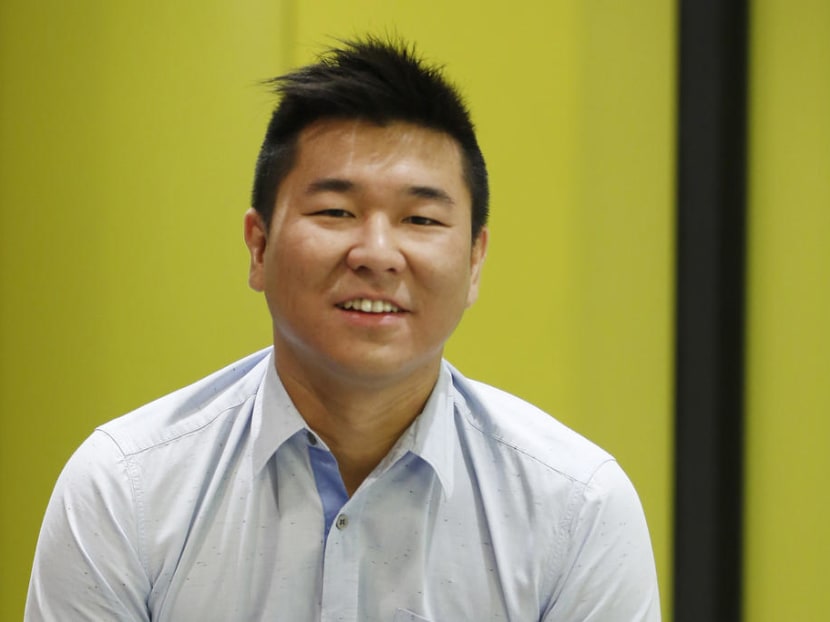Court awards brokerage summary judgement in US$5.1m claim against ex-Honestbee CEO Joel Sng
SINGAPORE — A South Korean stock brokerage has won a US$5.1 million (S$6.9 million) summary judgement against Mr Joel Sng, the co-founder of the now-insolvent start-up Honestbee, over shares in the delivery start-up it said were paid for but never received. Mr Sng is appealing against the ruling.
- Mr Joel Sng received US$5.1 million from a hedge fund that wanted to become an Honestbee shareholder
- But Mr Sng did not transfer the shares to the hedge fund
- The trustee of the fund, Mirae Asset Daewoo, sought a summary judgement against Mr Sng to retrieve the money, which was dismissed
- The High Court reversed this decision and awarded Mirae summary judgement for its US$5.1 million claim
- Mr Sng is appealing against this ruling
SINGAPORE — A South Korean stock brokerage has won a US$5.1 million (S$6.9 million) summary judgement against Mr Joel Sng, the co-founder of the now-insolvent start-up Honestbee, over shares in the delivery start-up it said were paid for but never received. Mr Sng is appealing against the ruling.
The brokerage, Mirae Asset Daewoo, is the trustee to a hedge fund that had wanted to be an Honestbee shareholder. Last year, it sought a summary judgement against Mr Sng after it paid him the money to buy shares in the company, but did not receive these shares.
A summary judgement is a court decision that does not require a trial. The assistant registrar had dismissed this application, allowing Mr Sng to defend himself in a lawsuit, which led Mirae to appeal against the decision.
In her grounds of decision released on Thursday (July 1), Justice Lai Siu Chiu explained why she decided to reverse the assistant registrar’s decision and award Mirae the summary judgement, including interest and costs. Mr Sng has indicated that he is appealing against Justice Lai’s decision.
Among other claims, Mr Sng, who was Honestbee’s chief executive from 2014 to 2019, had argued that he did not sign the purchase agreements for these shares, that it was his Honestbee successor Brian Koo who failed to transfer the shares, and that it was Mr Koo who told him to ignore the emails from the hedge fund.
In his affidavits, Mr Sng had also levied “a laundry list of grievances” against Mr Koo, whom he accused of conspiring to injure him through lawful means, the judge said.
Mr Sng then claimed that because the shares of the insolvent firm are now worthless, the hedge fund is taking legal action against him in order to improve its position in Honestbee’s insolvency by seeking full recovery of its investment.
He said in his affidavit that it would be “inequitable and unjust” to allow Mirae to recover the claim amount as he had channelled the sum into funding the operations of Honestbee.
Justice Lai said that this was later proven to be untrue.
In her grounds of decision, Justice Lai wrote that it was clear Mr Sng had not raised any issues that warranted going to trial.
Part of the money — around S$3.6 million — was used to redeem the mortgage of Mr Sng’s private home, one of his affidavits stated.
Mr Sng had submitted that he redeemed the mortgage so as to re-mortgage his property to ValueMax, in order to advance a S$4 million loan to the company.
However, no evidence was provided for this, Justice Lai noted.
The court also considered testimony from Mr Koo, who said that Mr Sng had sought to avoid his obligations under the share purchase agreements and to conceal them from Honestbee’s shareholders and management, and that Mr Sng had “embarked on an elaborate ruse”.
While Mr Sng’s defence counsel contended that there was no due diligence and a complete lack of interaction between their client and Mirae in the execution of the purchase agreements, which thus is an issue that should be heard in a trial, Justice Lai disagreed.
The judge said that it is no concern to Mr Sng that Mirae was willing to part with US$5.1 million without due diligence.
She added: “In the euphoria created by Honestbee’s rapid and successful expansion in its early days, (Mr Sng) and perhaps Mr Koo as well held an overly optimistic and, dare I say, unrealistic view of the company’s prospects and its valuation.”
The court is also “mystified” at Mr Sng’s “self-righteous and unreasonable” contention that Mr Koo, who had a relatively short tenure as chief executive officer of Honestbee compared with Mr Sng, was responsible for transferring the shares to Mirae, the judge added.
On Mr Sng’s claim that Mirae was merely trying to improve its position in the insolvency proceedings, Justice Lai said that it might be the reverse.
“Because Honestbee (before its liquidation) was not or never worth US$330 million or anywhere near that valuation, (Mr Sng’s) dreams of perhaps becoming a Jack Ma (of e-commerce giant Alibaba) never came to fruition,” she wrote.
"Having expended the claim amount and realised his shares in Honestbee are now worthless, (Mr Sng) decided to dispute liability under the share purchase agreements and conjured up unmeritorious defences to the plaintiff's claim," the judge said.












